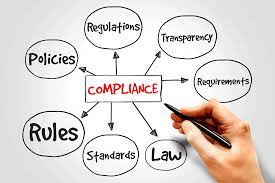Introduction
In the ever-evolving landscape of marketing, businesses are increasingly turning to automated solutions to streamline communication and reach their target audience more efficiently. However, with the convenience of automated marketing calls comes the responsibility to adhere to regulations that safeguard consumer privacy. The Telephone Consumer Protection Act (TCPA) is a crucial piece of legislation that imposes specific requirements on businesses engaging in automated marketing calls. In this article, we explore the essential elements required under the TCPA to ensure compliance when utilizing automated marketing calls.
Understanding the TCPA: An Overview
Enacted in 1991, the TCPA was designed to address concerns about intrusive telemarketing practices and protect consumers from unwanted communications. As technology advanced, the TCPA underwent amendments to adapt to new forms of communication, including automated marketing calls. The key provisions of the TCPA that pertain to automated marketing calls include regulations on the use of autodialers, prerecorded messages, and the National Do-Not-Call Registry.
Key Requirements under the TCPA for Automated Marketing Calls
Prior Express Consent
A fundamental requirement under the TCPA is the need for businesses to obtain prior express consent from individuals before making automated marketing calls. Prior express consent signifies that the recipient has willingly agreed to receive such communications, establishing a foundation for lawful engagement.
Identification of the Caller
The TCPA mandates that automated marketing calls clearly identify the caller at the beginning of the message. Businesses must provide their name and contact information, allowing consumers to easily recognize and verify the source of the communication.
Opt-Out Mechanism
A critical aspect of TCPA compliance is the inclusion of an opt-out mechanism in automated marketing calls. Businesses must provide recipients with an easy and immediate way to opt out of future calls. This can be in the form of a keypress option or a toll-free number that allows individuals to express their preference not to receive further automated calls.
Do-Not-Call Compliance
Businesses engaging in automated marketing calls must regularly consult and update their calling lists in accordance with the National Do-Not-Call Registry. Checking and respecting the preferences of consumers who have registered on the list is essential to avoid TCPA violations and maintain a positive relationship with potential customers.
Time-of-Day Restrictions
The TCPA imposes time-of-day restrictions on automated marketing calls. Calls should not be made before 8 a.m. or after 9 p.m. local time at the recipient’s location. Adhering to these time restrictions is crucial to avoid inconveniencing consumers and ensure compliance with TCPA regulations.
Live Representative Requirement for Prerecorded Messages
When utilizing prerecorded messages in automated marketing calls, the TCPA requires that a live representative is made available to speak with the recipient. This ensures that consumers have the option to engage in a real-time conversation if desired, adding a layer of interactivity to the communication.
Challenges in TCPA Compliance for Automated Marketing Calls
Consent Management
Managing and documenting prior express consent for automated marketing calls can be challenging. Businesses must implement robust systems to obtain, track, and update consent preferences to ensure ongoing compliance.
Identifying Autodialers
Determining whether a system falls within the definition of an autodialer, as outlined by the TCPA, can be a complex task. Courts and regulatory bodies have provided varying interpretations, and businesses must navigate these nuances to avoid potential violations.
Consumer Awareness
Ensuring that consumers are aware of their rights under the TCPA and how to exercise their opt-out preferences can be challenging. Businesses must proactively educate individuals about the nature of automated marketing calls and provide clear instructions on opting out.
Dynamic Regulatory Landscape
The regulatory landscape, including TCPA requirements, is subject to change. Businesses must stay informed about updates and modifications to regulations, adapting their automated marketing call practices accordingly to remain in compliance.
Best Practices for Ensuring TCPA Compliance in Automated Marketing Calls
Transparent Communication
Prioritize transparent communication in automated marketing calls. Clearly state the purpose of the call, identify the caller, and provide contact information at the beginning of the message to build trust with recipients.
Optimization of Consent Management Systems
Implement optimized consent management systems to ensure accurate and up-to-date records. Regularly review and update consumer consent preferences, and provide easy mechanisms for individuals to manage their communication preferences.
Regular Training for Staff
Provide regular training for staff involved in automated marketing call campaigns. Ensure that representatives are well-versed in TCPA regulations, can answer consumer inquiries, and follow proper procedures for obtaining consent and managing opt-out requests.
Integration of Advanced Compliance Tools
Leverage advanced compliance tools that seamlessly integrate with automated marketing call systems. These tools may include features such as real-time access to the National Do-Not-Call Registry, automated opt-out mechanisms, and analytics for monitoring compliance.
Proactive Consumer Education Initiatives
Proactively educate consumers about TCPA compliance through various channels, including automated messages themselves, websites, and customer service interactions. Help consumers understand their rights, the purpose of the calls, and how to exercise their opt-out preferences.
Regular Compliance Audits
Conduct regular audits of automated marketing call practices to assess compliance with TCPA regulations. Audits should cover consent management, do-not-call compliance, and the effectiveness of opt-out mechanisms. Regular assessments help identify and address potential issues before they escalate.
Adaptive Communication Strategies
In situations where urgent or critical communications are necessary, businesses should have adaptive communication strategies. This may include leveraging multiple channels, such as text messages or emails, and clearly communicating the nature of the communication.
Conclusion
Navigating TCPA compliance in the realm of automated marketing calls requires a strategic and proactive approach from businesses. By prioritizing transparent communication, optimizing consent management systems, and leveraging advanced compliance tools, businesses can strike a balance between effective marketing and regulatory responsibilities. Proactive consumer education, regular training for staff, and a commitment to adaptability in the face of regulatory changes are essential elements for ensuring ongoing compliance with the TCPA. As businesses continue to explore the potential of automated marketing calls, a comprehensive and compliance-focused approach becomes integral to building trust and maintaining positive relationships with consumers.
